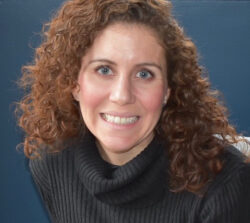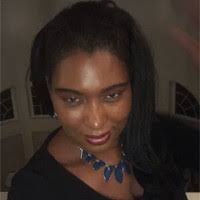 Aubrie Fennecken is the Global Executive Director of WIN: Women in Innovation, a nonprofit organization built to close the gender gap in innovation. Aubrie speaks on why equity in innovation is so critical to breaking the cycle of inequity in our world more broadly. WIN is an amazing community of innovators across the globe innovation resources. She explains what her organization is doing to address the gender gap and support innovative women.
Aubrie Fennecken is the Global Executive Director of WIN: Women in Innovation, a nonprofit organization built to close the gender gap in innovation. Aubrie speaks on why equity in innovation is so critical to breaking the cycle of inequity in our world more broadly. WIN is an amazing community of innovators across the globe innovation resources. She explains what her organization is doing to address the gender gap and support innovative women.
Tag Archives: of women
A Post-Pandemic Recovery Playbook for Women – by Cathy Light
As vaccines roll out, we turn our attention toward economic recovery. The traditional stimulus measures of the past, dominated by investment in infrastructure and construction, will not be effective in our post-pandemic world. Those sectors are male-majority employers, and COVID-19 has had a disproportionate impact on women.
According to the U.S. Department of Labor, in one month (September 2020), more than 1 million Americans over the age of 20 left the U.S. workforce. Roughly 80% – over 865,000 of them – were women. There are now nearly 2.2 million fewer women in the labor force than there were in February 2020 before the pandemic. In October 2020, the U.S. retail trade sector gained 103,700 jobs. Women accounted for only 11.4% of those gains, despite making up 48.4% of the retail trade workforce. We must do better.
Continue reading A Post-Pandemic Recovery Playbook for Women – by Cathy Light
Maybe Some Silver Linings – by Gay Morgan Moore
The world will long remember the past year! We were thrust into circumstances that will forever change us individually and globally. We know the results – over 530,000 dead in the United States alone, millions sickened, an economy in free fall struggling to recover, a severely challenged health care system, new medicines, new disease conditions, and trillions of dollars in government spending attempting to ameliorate the effects of this global pandemic. The list of negative consequences goes on. But are there some “silver linings?” Is there some good coming from this daunting and often frightening global challenge?
Continue reading Maybe Some Silver Linings – by Gay Morgan Moore
Defeating Disparity– By Katelyn DeBaun-Fee
Race & Economic Disparity
By the end of 2020, federal student loan debt in the United States surpassed $1.7 trillion, increasing by over 100% in the last decade. While this has become a national crisis impacting nearly 45 million borrowers, Black women are the most heavily burdened. A 2020 report by the AAUW indicates that Black women, on average, hold over $37,000 in loans each, compared to $31,346 held by white women, and $29,862 held by white men. As a whole, Black women, despite being the most institutionally educated demographic in the U.S., have a total of $35 billion in student loan debt. Furthermore, 57% of Black female college graduates indicate that they struggle to repay their student loans. While white borrowers are able to pay back an average of 10% of their total student loan debt each year, Black borrowers are only able to pay an average of 4% back, largely due to racial pay disparity.
Continue reading Defeating Disparity– By Katelyn DeBaun-Fee
Natasha Copeland: Award-winning NBC 4 Journalist
 Natasha Copeland is an Emmy award winning journalist, with more than two decades of experience. She is a news assignment editor for NBC 4 in Washington, DC. Natasha develops, plans and fact checks daily breaking news, community -related news, and major local and national news. She has been the logistical lead for stories that include General Elections to live community events. Currently, most news coverage revolves around the Covid 19 pandemic.
Natasha Copeland is an Emmy award winning journalist, with more than two decades of experience. She is a news assignment editor for NBC 4 in Washington, DC. Natasha develops, plans and fact checks daily breaking news, community -related news, and major local and national news. She has been the logistical lead for stories that include General Elections to live community events. Currently, most news coverage revolves around the Covid 19 pandemic.
Natasha’s focus is on The People in her private life as well as her media career. She and her husband, now retired from law enforcement, are community advocates and activists for the underserved.
# # #
Editor’s Note: It was truly a pleasure interviewing Natasha whose compassion for the people she serves is matched by her perseverance in becoming a leader in an industry where there are few women of color. Now working from home given COVID-19, she maintains both her family and her NBC staff with grace and extraordinary skill. Dealing with the heart-breaking stories of the pandemic era, Natasha Copeland is an inspiration. She’s a reminder that media, like medical personnel, serve on our front lines.
CLICK for Video Recording/Podcast of Natasha Copeland’s interview
Charlie Buhler: Bi-Racial Film Director
 Charlie Buhler is a film director who has been strongly influenced by her upbringing as a bi-racial woman growing up in a predominantly white area in South Dakota. Charlie uses her work to make sense of the dichotomy between how she experienced the world and how the world experienced her through the lenses of race and gender.
Charlie Buhler is a film director who has been strongly influenced by her upbringing as a bi-racial woman growing up in a predominantly white area in South Dakota. Charlie uses her work to make sense of the dichotomy between how she experienced the world and how the world experienced her through the lenses of race and gender.
Hear her speak about her path to becoming a film director and the importance of representation on-screen. Be inspired by Charlie’s experience as a woman of color in the film industry.
CLICK for Interview with FILM DIRECTOR CHARLIE BUHLER
Women and Higher Education Inequity – by Jaclyn Anderson, Margie Crowe
Faculty and Leadership Positions, COVID-19, and Structural Disparities
Where Are the Allies?
The structural disparities linger within higher education and are influenced by long-standing patriarchal practices and ideologies. These inequalities can lead to a lack of diversity and inclusion of single-parent households and women. The problem has become salient given the current pandemic of COVID-19., which disproportionately affects women and single-parent households. Inflexible thinking and leadership practices in higher education have led to barriers to full inclusion of women in higher education positions that are exacerbated when women must choose between their career and their families. Current higher education leadership practices often disallow or acknowledge the right of women to exist in this space. Institutions are reluctant, and indeed refusing, to allow accommodations for staff, faculty, and students (allowing work from home, reducing attendance requirements, required on-campus hours). Administrations that are rife with patriarchal ideologies, with little or no understanding of the consequences of these archaic policies, seem to continue with business as usual.
Continue reading Women and Higher Education Inequity – by Jaclyn Anderson, Margie Crowe
STEM Women Make it Count – by Sheila Boyington
‘Make It Count’ Event Commemorates Centennial of Women’s Right to Vote, Highlights Equity and Education
This year of 2020 marked the 100th anniversary of a remarkable shift in the women’s suffrage movement—the ratification of the 19th Amendment in 1920 which ensured a woman’s constitutional right to vote.
Continue reading STEM Women Make it Count – by Sheila Boyington
A STEM Woman’s Story – by Deborah Levine
Don’t Bother Trying to Fit In

When my family moved to America from British Bermuda, I was still in elementary school, having completed first form, the equivalent of first grade, at the Bermuda High School (BHS) for Girls. Uniform and uniformed, I marched in step with the other girls, just as my mother had done through her entire schooling at BHS. Yes, I did stand out as the only Jewish girl in the school, or anywhere on the island. But generations of my family were well known on the island, so the singularity was tolerable. Inserted into a New York City suburb, I was delighted to find that this particular oddity was completely irrelevant. For better or worse, I still stuck out and a confidence crisis set in.
Ladies Night’s New Decade – by Deborah Levine
It’s 2020 and there’s a lot of buzz about stand-out stories of the last decade. One of my favorites is the proposed replacement of the statue of Confederate General Nathan Bedford Forrest with one of Country Music’s Dolly Parton. The suggestion is a piece of genius! Let’s go from the sombre debate over Forrest’s dark background as a KKK founding member to Dolly, Tennessee’s music icon who makes you want to break out into a chorus of “Rocky Top”. Who better to represent our state capital than the creator of Dollywood, beloved by the entire country?
Continue reading Ladies Night’s New Decade – by Deborah Levine

